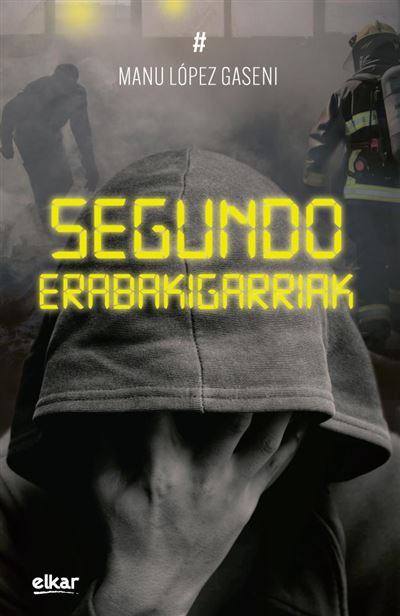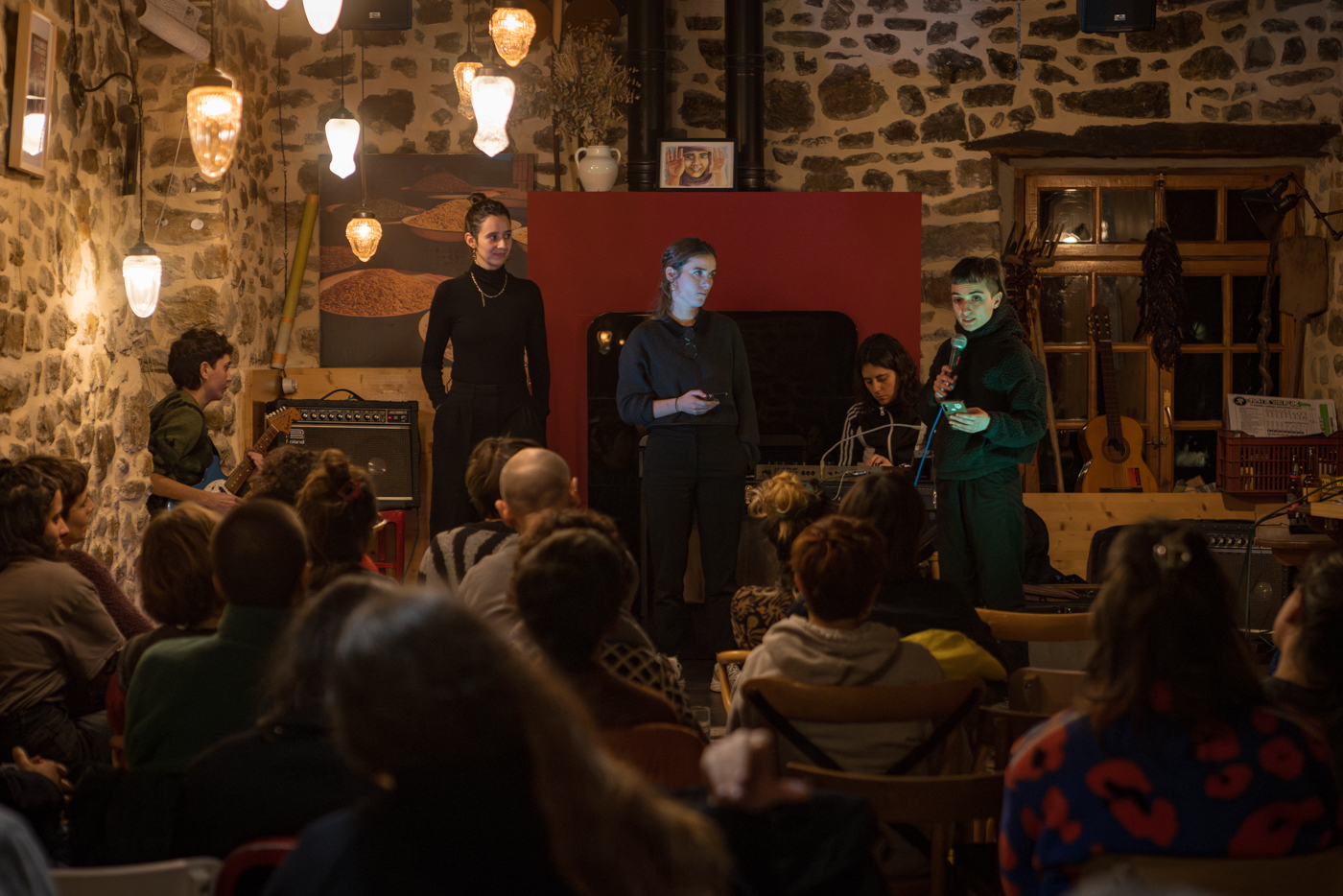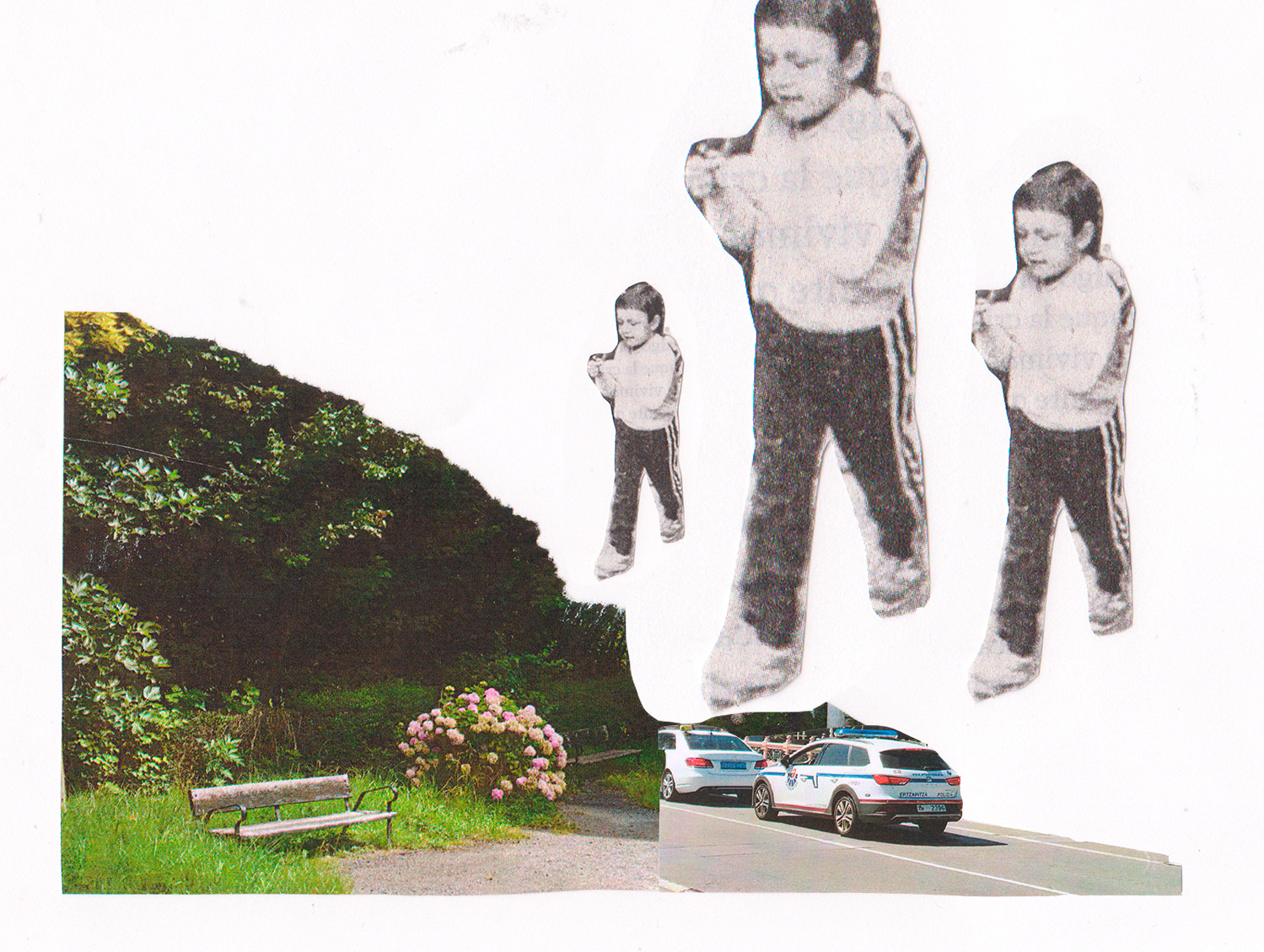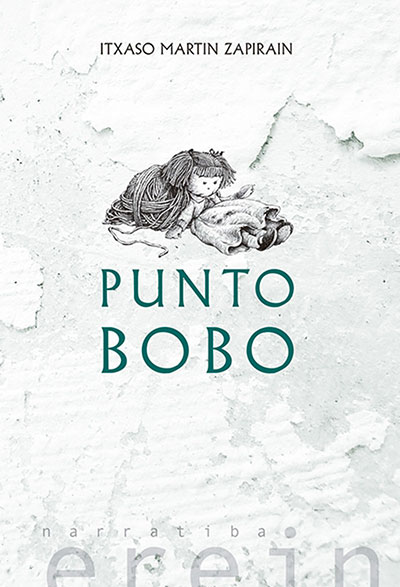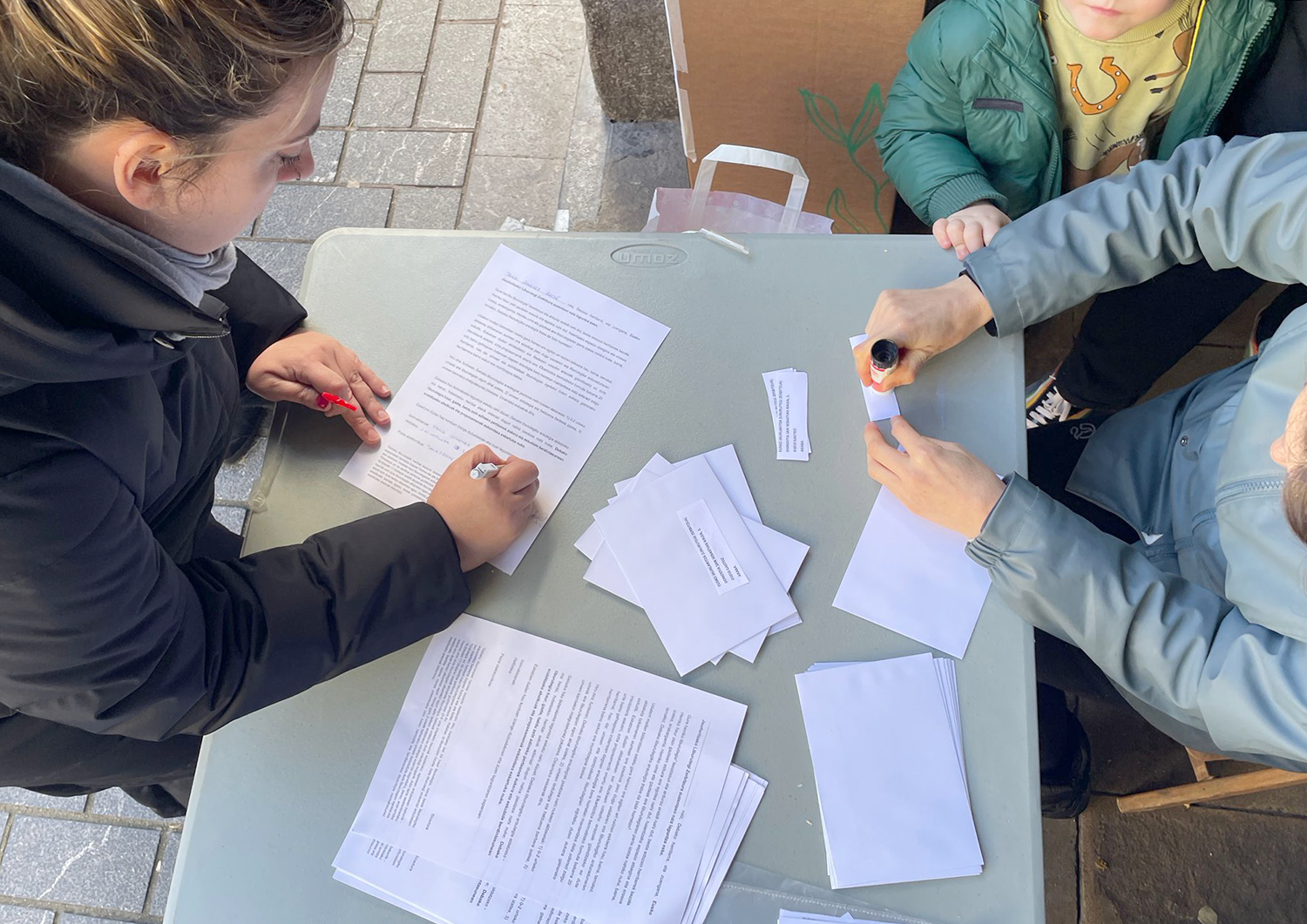"I'm not interested in literature that doesn't reach me down my throat."
- Before I start, he mentioned the word “character” to refer to what he speaks in his poems, like to warn the journalist, it’s him, it’s me. He's a dark, lonely guy who needs the city to lose it, hurt by life, desperate in moments of sadness, ironic in moments of joy, sings to the past when he doesn't sing. I, on the other hand -- well, I might as well, but not as much as he did.
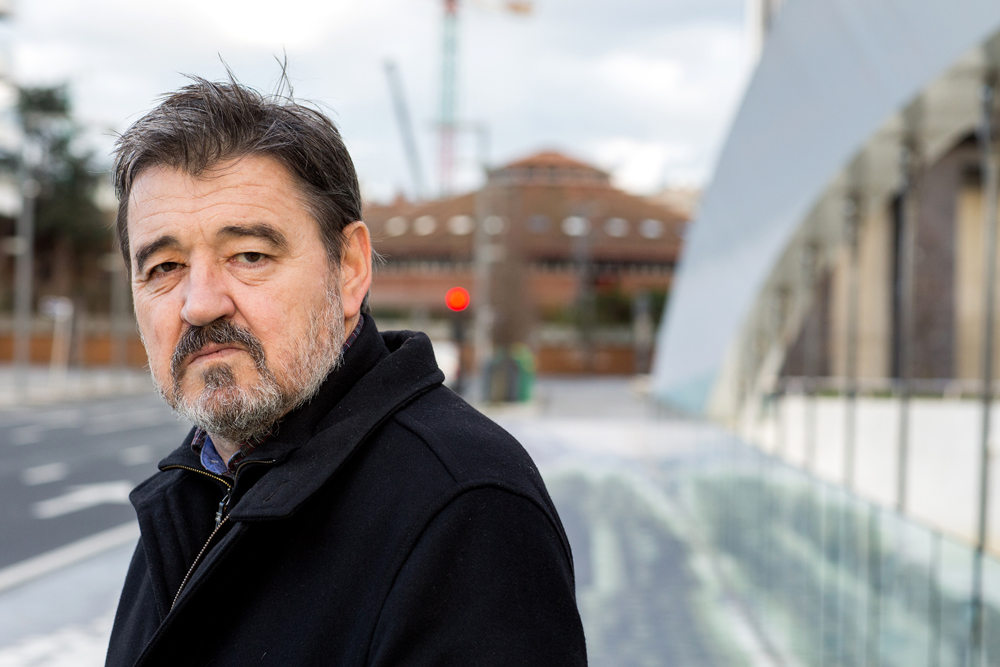
How do you remember the beginnings?
At the Bodegón San Ignacio de Gros we had five or six people, on Thursdays, at 17 years old. It was a great inn and they left us a table. Isidro Mendibil, Julia Otxoa – who then became a writer – and others I don’t remember now. We had a literary magazine called Barro. There I published two poems, but I only have one sonnet. Except for Otxoa, the others stopped writing, and I left alone.
I have read it: The 80s were for you very lonely.
At least as a writer. I hardly had any works. I didn't know any writers. There were some, first around Kurpil and after Kantil magazine: Felipe Juaristi, Carlos Aurtenetxe, Felix Maraña, Otxoa himself… They were high-level journals. I guess they would have taken some rubbish to the Council. They also separated, and now everyone goes on their own.
Didn't you have relationships with that group?
Nothing. Not with the group or with anyone. I was writing. In other things not, but I have always been stubborn and willing. Without the slightest idea of what he did, he kept doing it.
What's strange to me is to spend a decade in isolation. In the end, one always ends...
The fact is that almost all the members of the Barro group abandoned it. The Otxoa, however, as he moved to the Kantil, climbed a step. They looked like great writers. Well, I don't know if I'm being very honored, maybe I didn't look so big (laughing). But I thought, “Literature has to be what they have done.” Then I met them personally, at 90, when I started publishing regularly, but without much contact. I've always been a loose thread.
Well, now you are part, at least, of La Tertulia Errante.
"I really like the "bad poets," the bohemian poets of the 1920s, the ones that have stayed on the road."
Yes. We started in Circulo Riojano, we continued in the Kaxilda and lately we met at the Tedone restaurant on Wednesdays. We are three or four fixed, the others appear when they want. Writing people, musicians -- multifaceted people. When someone just published a book, we talked about literature. In times when no one publishes anything, we talk about everything. Most of all, I go because I have time and I like to talk about these things, but we don't form a group of artists, with an aesthetic, etc. I have at least to talk about these issues, and that is no small thing in this city – speaking euphemistically – special. I already have some readers, both here and in Spain. Starting in 2005, I have published at least one book every year, sometimes two, sometimes three. At this rate, even the one who hates you ends up knowing you. My poems are very close, too. With a “misleading” ease, but they reach people. I'm talking about life, emotions, moments -- that's what I'm looking for in literature. Art doesn't interest me in art.
The text needs credibility for you. And, for example, he doesn’t believe in a Vila-Matas…
(Laughing) I don't know, I know him. Vila-Matas’s is a metalworking in which everything fits: he’ll suddenly tell you that he’s in Paris having a coffee with Hemingway. No, Hemingway died in 1961. I don't get into this perpetual invention. I need something credible, convincing.
You didn't publish anything until you were 35.
Earlier, at 33, I published a plataquette. But yes, The Human Condition came out with 35. One night Michel Gazalso came to the bar Akerbeltz, he started talking and told me that he had written a book with Pamiela: The adventures of Maxima Tiratti – which is all well and good, by the way. And he went to the Gijon Film Festival to meet with a poet named Roger Wolfe, whom he admired, and who, if I wanted, would teach him my works, etc. The fact is that from there I got the first book with the editorial Renaissance, and as it had a small success, I got another one in 98, and in 99, an anthology that later translated into Basque with Erein in 2000…
How did this come about?
I was in trouble. From time to time, Xabier Etxart, a professor of Euskaltegi, was a translator for hobby. He told me that he was translating some of my poems. He asked me what we could do with him when we reached about 80. I knew Harkaitz Cano, and once we passed the material, we decided to create a book. It was Harkaitz himself who made the prologue. We sent him to several editorials in Euskera, and those of Erein responded. I was very happy, especially for Xabier.
Do you have any relationship with the Basque literature?
I have a good relationship with some writers. Iñaki Aldekoa, Paddy Rekalde, Rikardo Arrangi, Harkaitz himself -- it's not a daily thing. We are in different worlds, I publish it in Madrid, Sevilla...
"I prefer a living imperfect literature to a dead perfect literature"
Beyond personal relationships, do you perceive mutual knowledge between cultures?
I think they know more than they recognize. And I would leave it there.
In the new book While I'm away, you write to old age, love, women, the past of time, rain… Innovative topics in your poetry, no doubt.
(Laughing) I keep the umbrella up and down. Compared to eclectic writers, who now take out a realistic book and then a surrealist, I prefer those who choose a particular style.
Fixed sprockets.
That's it. However, there is a novelty to the previous books: it has a thread. First there are the summer poems, then the fall poems, then the winter poems and finally the spring poems. At first I had thought about starting spring and ending winter, but it seemed a bit terrible to me, I thought: “Leave some hope, even if you don’t believe in it.”

The Beach Bar envelops the general tone of the book. From the bar, one who looks at some young people on the beach talks about how having fun is normal for them, how summer is the youth season, and how he no longer remembers the times when he was young. It seems that he is someone with few illusions.
I exaggerate a bit, there's a hyperbole there. But yes, I am ironic that he is no longer young… I know that it is not easy to tell a young man today that he has taken a good time to live, what will answer you, “why?”, but I think that this reflection, which is not the same to be 20 years now or in 1979, with a tremendous economic crisis…
I hear this from the crisis ...
Yes, of course, certainly. What I mean is that having a swimsuit when I was young was almost a luxury. It is that idea, exaggerated and debatable, but what I wanted to express on that ironic final tour: Why didn't I do so well?
It's a voice that sits on the edge of life. Life is there, on the beach, among the young. He's a mere spectator.
As the books are being published, a poetic character – the one who speaks – has gradually appeared in my poetry that looks a lot like me, but not always… In the first books I realize that this character is more in life, which is one of the protagonists of the events of the bar, for example. Over time, he's gone from the center of the bar to the edge, from active agent to looking at what the rest do. That's called the passage of time. Now he lives for another moment.
You often play with the last shot. You like to close poems.
That's in all my poetry, yes. Closing the poems has a problem: if it doesn't close them well, it fascinates the poem. Instead, if you leave it open, you run the risk of not transmitting anything to be suggestive. I hasten to close it because closing it often results in a lyrical blow to the word.
"There's an age when the options end up: simply, there are things you can't do anymore."
You also attach importance to removing useless words.
If, instead of fifteen words, a sentence is held by thirteen, I would prefer thirteen. For me, the idea must appear naked, staying on the page. It survives because it deserves to survive. This time I haven't taken the thing so seriously, but I tend to ellipse. That can be good, and not so good, because sometimes, when you take it off, you take away the little poetry that the poem had. You have to be careful about that. However, I have never been interested in rhetoric – and I do not get well with my poetic style. Rhetoric is an excess that ages badly. He writes a bright adjective and at the age of five he wants to eliminate it.
Is it not interested in rhetoric as a reader?
I really like the “bad poets”, the bohemian poets of the 1920s, the ones that stay on the road, the ones that are for beginners, at most. They're often rhetorical, but I like them because they're very human. They're part of that kind of people who fight, but they get nothing. Or Borges' poetry is also fine, although it's not very rhetorical. What I don't like is the filling, the embellishment. But does he read it? I have read all the Spanish literature. It's not a bluff, I've just been reading a lot of hours. What do I read? Very few things: Becquer, Machado, Jiménez, Pedro Salinas, Cernuda, Gil de Biedma, Ángel González, Luis Alberto de Cuenca, Luis Antonio de Vienna, García Montero…
When you go into a bookstore, you think: “How many novels, and how well they all write, and how little I am interested in.”
Writing well is not enough, literature has to be authentic. What is formally correct does not satisfy me, I need the page to rise. That's why I say that. Maybe it's because I'm not 20 years old anymore, because I feel a disconnect from the interests of many writers. But the literature that doesn't reach me through my throat doesn't interest me. Pío Baroja, for example, is often clumsy: it introduces many adverbs, it stops a lot, but its writings have an incredible life. I prefer an imperfect living literature to a perfect and dead literature.
So it's not just something that happens to you with novels. There are poets you don't care about at all.
Most of them. Why fool her. I am becoming a more tired reader, I find it hard to find texts that tell me something. With the novels, it happens to me a little bit like when you walk around the city and when you turn around the corner the road starts to rise. “Wow, now do I have to go up all this?” In other times, I swallowed black novels. Now I read newspapers more and more at ease.
Old age is another of your themes. In Wrinkles you say that today nobody wants to be old, let alone look old.
"You'll always have more opportunities if you have a group that pushes you around than if you're alone."
Old faces, ages, wrinkles -- before they said that that person had spent time on this earth, they had that prestige. In these frivolous times no one wants wrinkles, the whole Christ wants to be as if he was 35 with 60. This obsession with worshiping youth is a crazy one. Of course, then you see some terrible things out there ...
Poets aren't at the best time either. They used to have the epic of defeat, now not even that. Why write then?
All that's left is writing, look. The poet seemed to glow from twilight. Now, poets, at least many of those I know, want to live well, turn on the stove in winter, travel a lot... I'm going to write you a poem about failure, but don't touch me.
A difficult age, they say, is that age when “opportunities are over”. I liked the concept.
It's a loan from a poem by Philip Larkin. My age is a difficult age. I do not want to look too tragic: at this age you still live, you laugh, etc. But there's an age when the options end up: simply, there are things you can't do anymore. And because what's coming is not exactly wonderful ... It's a sensation that comes from time to time. On a Sunday afternoon, in a bar, looking at the rain, you start to look over life and think, "Fuck, to ze disastrous." Half an hour later you may be more joyful, but...
What remains is to survive, to observe the world and, at best, to leave it written?
From a given moment on, it is not a little. As long as you have it, you have something. It is true, my poems refer lately to the fall of life, without traps. And I'm not saying it's not arguable: someone of my age can come asking me with extraordinary joy what the hell I'm saying. But whoever talks like me shows my vision of the world. In addition, you can always find open windows, some poem of humor, even joyful ...
Hey, how do you take the prize account? First the Euskadi Prize, then the City of Melilla... is on site the cursed poet that was not awarded.
I said I wasn't a winner because my literature isn't very literary, it can leave the criticism cold. In addition, to receive a prize, a person must have a number of characteristics. You'll always have more opportunities if you have a group that pushes you around than if you're alone. For all of this, I was not a reward. He was a finalist at the Euskadi Awards, but he never won. On this occasion, I think they wanted to reward me for the journey. Someone would say, “We will have to give something to this once.” In addition, this book came with great guarantees: it was made with the Librarian's Prize, was finalist in the Spanish Critics' Prize and in the Spanish National Prize...
Do you think it's time?
Maybe I don't know. I didn't expect it anymore... she's caught me out of place. So it has happened very well. I'll keep writing.
Idazketa labana bat da
Annie Ernaux
Itzulpena: Leire Lakasta
Katakrak, 2024
Decisive seconds
Manu López Gaseni
Beste, 2024
--------------------------------------------------
You start reading this short novel and you feel trapped, and in that it has to do with the intense and fast pace set by the writer. In the first ten pages we will find out... [+]
Istorioetan murgildu eta munduak eraikitzea gustuko du Iosune de Goñi García argazkilari, idazle eta itzultzaileak (Burlata, Nafarroa, 1993). Zaurietatik, gorputzetik eta minetik sortzen du askotan. Desgaitua eta gaixo kronikoa da, eta artea erabiltzen du... [+]
When the dragon swallowed the
sun Aksinja Kermauner
Alberdania, 2024
-------------------------------------------------------
Dozens of books have been written by Slovenian writer Aksinja Kermauner. This is the first published in Basque, translated by Patxi Zubizarreta... [+]
Sometimes I don't know if it's too much. That we're eating a pipe, that we're talking about anything else, that we're bringing it up. We like to speak aloud, to leave almost no pause, to cover the voices, to throw a bigger one. Talk about each one of them, each one of them, what we... [+]
Puntobobo
Itxaso Martin Zapirain
Sowing, 2024
----------------------------------------------------
The title and cover image (Puntobobo, Wool Bite and Rag Doll) will suggest mental health, making the point and childhood, but more patches will be rolled up as the book... [+]
Party and recreation. Oral History of Rock Radical Vasco
Javier 'Jerry' Corral
Books, 2025
------------------------------------------------
Javier Corral ‘Jerry’ was a student of the first Journalism Promotion of the UPV, along with many other well-known names who have... [+]
Itsasoa bete urre
Dani Martirena
Irudiak: Ana Ibañez
Txalaparta, 2022
--------------------------------------------
Liburu honetara barneratzen den irakurleak sentsazio ugari izango ditu. Deigarria da azaleko letren urre kolorea eta zuritasuna, goialdean ageri den... [+]
Hirietako egunerokoa interesatzen zaio Sarah Babiker kazetariari; ez, ordea, postaletako irudia, baizik eta auzoetan, parkeetan, eskoletan, garatzen den bizitza; bertan dabilen jendea. Lurralde horretan kokatzen dira bere artikuluak, baita iaz argitaratu zituen bi lanak ere... [+]












